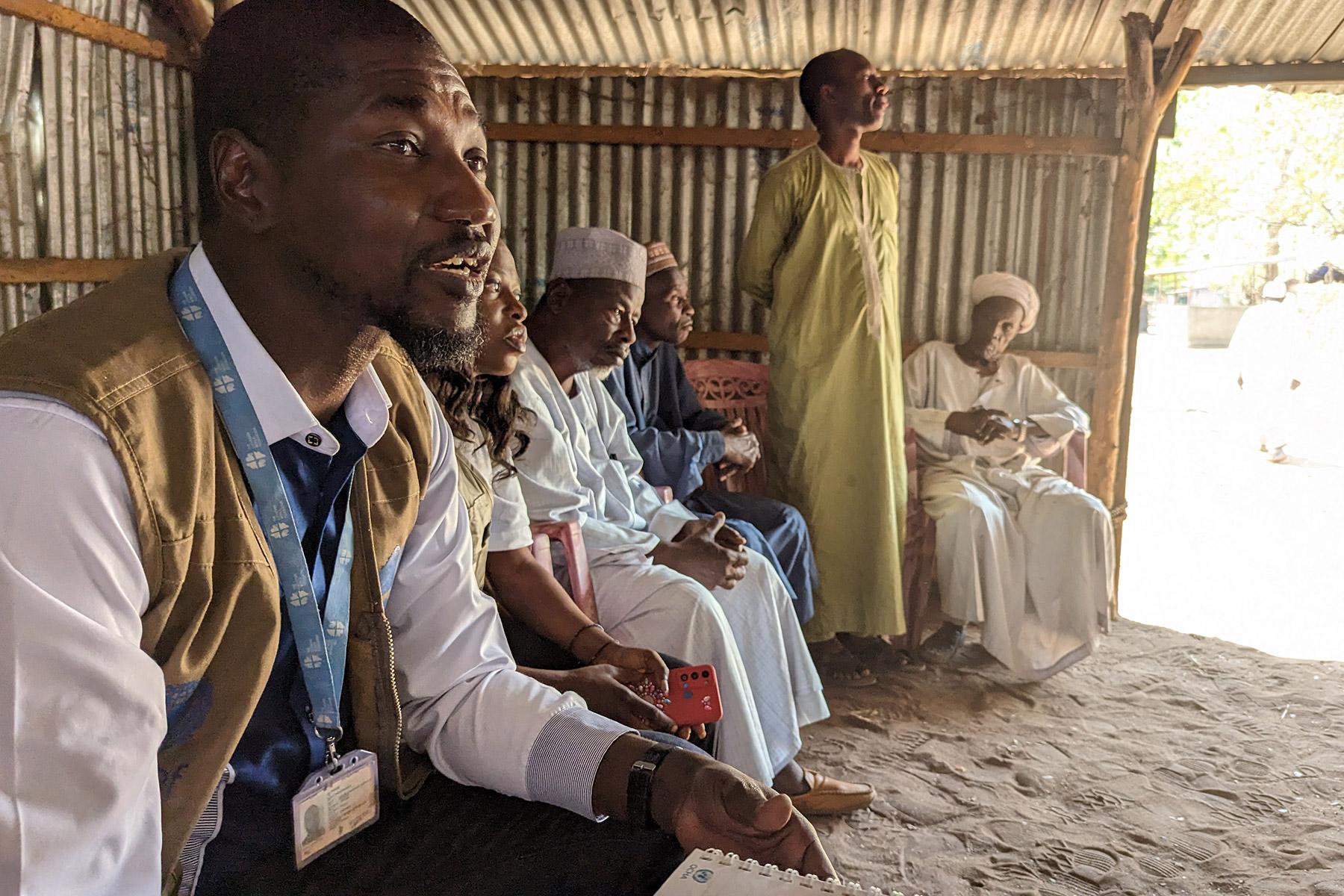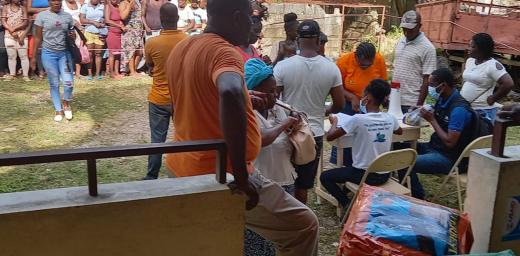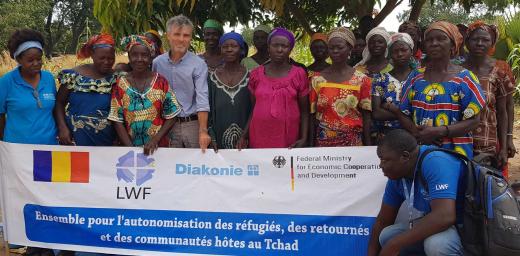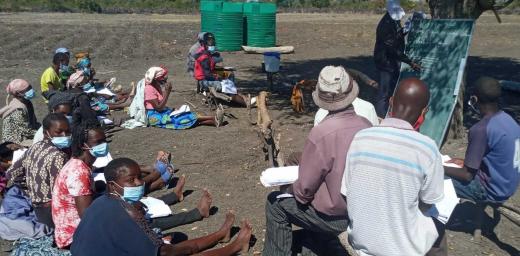“Pledge to work with the most marginalized communities”
(LWI) - Humanitarian work is becoming increasingly dangerous and challenging. On the occasion of World Humanitarian Day 2023, the Lutheran World Federation (LWF) joins aid organizations worldwide in highlighting the commitment of aid workers in the crisis regions of this world.
LWF has 7,700 humanitarian staff, working for the humanitarian and development arm World Service. More than 90 percent come from the country they work in, and are based in the communities they serve. LWF World Service is present in 28 countries including Colombia, Chad, Haiti, Myanmar and Ukraine.
“On World Humanitarian Day we particularly remember and honour our staff who work across the world, often in very challenging and dangerous situations,” says Maria Immonen, Director of LWF World Service. “They have stayed, together with the communities they serve through escalating conflict, devastating natural disasters, and difficult security situations.”
On World Humanitarian Day we particularly remember and honour our staff who work across the world, often in very challenging and dangerous situations.
– Maria Immonen, Director of LWF World Service
Access challenges
Some of the LWF field colleagues have been sharing the specific challenges of their working stations. Roger Kalimiro, WASH and shelter specialist in Chad, has been on the frontline of the response to the conflict in Sudan for the past months. “There is little time to rest, because the needs are so great”, he says. The funding does not meet the overwhelming needs that Roger and his team see every day. Relief goods are scarce and expensive, and the security situation is tense. “We have experienced vehicle and motorcycle robbery.”
His counterpart in Iraq, Senior WASH officer Azad M. Ahmad, has to pass several checkpoints whenever he travels to the communities he serves in the Ninewa plains. Although the so-called Islamic State has been defeated in Ninewa, the situation is tense. “The harsh weather conditions and frequent sand storms during summer seasons encourage random attacks”, he says. Access to provide aid to people in need is difficult in almost all places where LWF works. Repeatedly, LWF has spoken out on the respect for humanitarian space.
“This is worth it”
The main motivation to work under such challenging conditions for many is the pride in their work. “Ukraine is one of the most challenging countries I have ever worked in”, says Mark Mullan, LWF team leader in the youngest LWF country program. He recounts frequent air raids, several times per day, which interrupt work and sleep. “Seeing that our work makes a real difference in people's lives makes all the challenges worthwhile,” he emphasizes.
Roger Kalimiro in Chad remembers installing a water system for Sudanese refugees, who had been without fresh water for days. “Looking at the smile and the hope on people's faces, (...) where water gushes out, warms the heart.(...) These are moments when I think this is worth it, and we no longer feel the lack of sleep and the difficulties of our work.”
“Our staff exemplify our pledge to work with the most marginalised communities affected by the many crises in our world today, to stay and deliver, no matter what”, LWF World Service director Maria Immonen emphasizes. “LWF World Service would not exist without them.”






